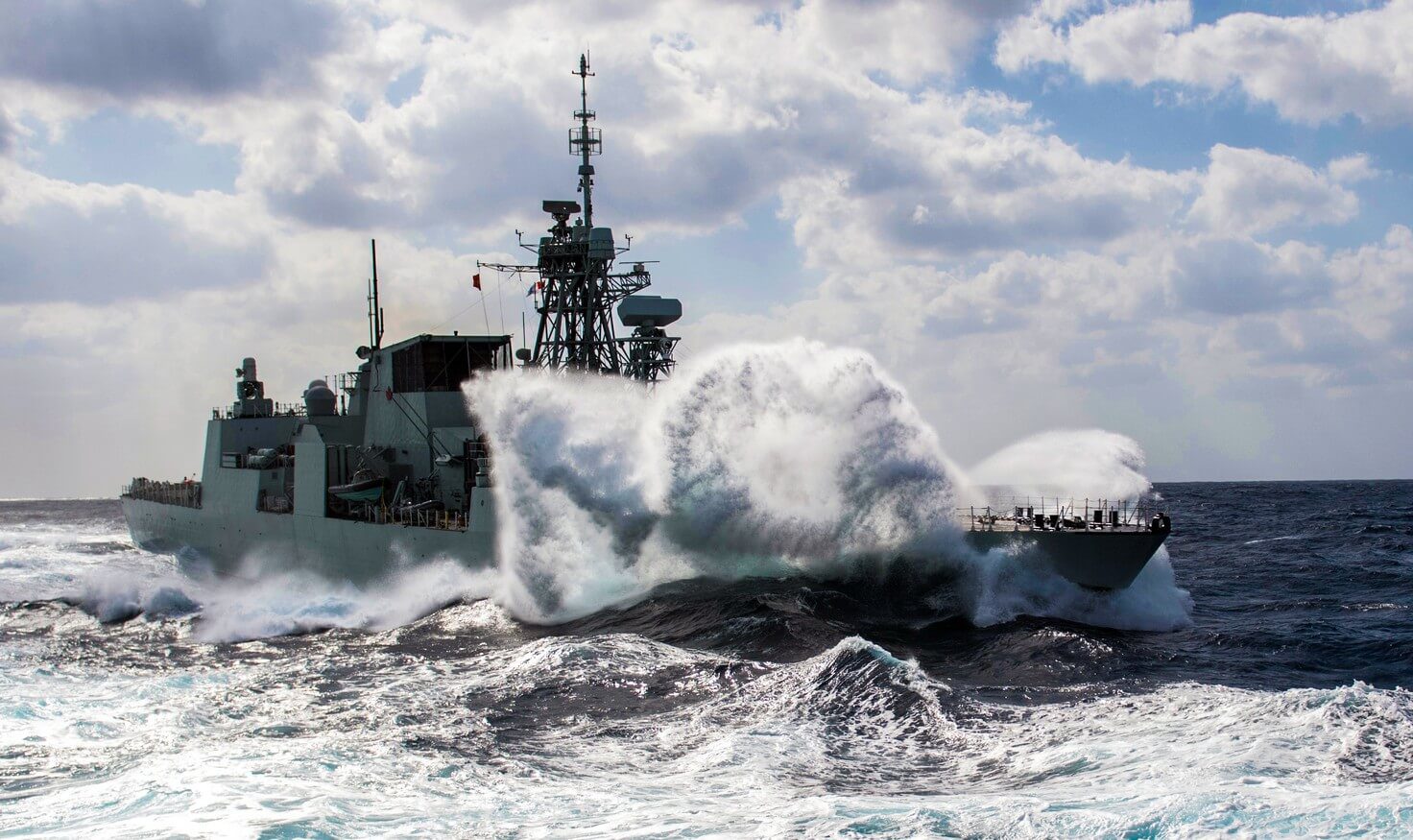 MLI’s defence policy report card finds the government scoring eight “completes,” 11 at the “ongoing” stage, and seven with the status “incomplete and prognosis poor,” writes Jeffrey Collins.
MLI’s defence policy report card finds the government scoring eight “completes,” 11 at the “ongoing” stage, and seven with the status “incomplete and prognosis poor,” writes Jeffrey Collins.
By Jeffrey Collins, December 17, 2018
The 2015 federal election seems like a lifetime ago. Riding a wave of change, the new majority government of Justin Trudeau promised to bring Canada back to its traditional middle-power status in world affairs. UN peacekeeping would be in and the F-35 would be out.
However, as the new government sought to craft its own defence policy – June 2017’s Strong, Secure, Engaged: Canada’s Defence Policy – they encountered a rapidly escalating geopolitical environment, characterized by great-power tensions, simmering regional conflicts in Eastern Europe and the Middle East, North Korean ballistic missiles, and a new U.S. president committed to keeping tabs on allied “dues.” In attempting to respond to this new era, Strong, Secure, Engaged promised over $33.8-billion in additional funding over 20 years, equating that commitment to the largest recapitalization of the Canadian Armed Forces (CAF) since the 1950-53 Korean War.
In anticipation of that policy, the Macdonald-Laurier Institute (MLI) produced its own defence policy recommendations in March 2017, titled “First Principles and the National Interest.” With the input of 19 leading defence scholars and practitioners, that report outlined 26 recommendations across five themes: defence priorities and principles, the security environment, alliances, UN involvement, and future capabilities.
With these recommendations as a metric, the institute has now turned to assessing the Trudeau government’s performance with a new report card, “First Principles and the National Interest: Report Card on Canadian Defence Policy 2018.”
The report card finds the government scoring eight “completes,” 11 at the “ongoing” stage, and seven with the status “incomplete and prognosis poor.”
With the items completed, the Trudeau government has adhered to the country’s long-standing practice of prioritizing the country’s defence over protecting the continent and participating in international security operations. The government has done well in responding to immediate allied operational concerns, taking leadership roles on NATO missions in Latvia and Iraq. Moreover, there is a focus on avoiding “mission creep.” Whether with NATO or the UN in Mali, Trudeau-era missions are providing niche capabilities with clear deadlines.
For those commitments scored as ongoing, the government confronts the impact of the Trump presidency’s transactional view of international relations. Amid a return of great-power rivalry not seen since the Cold War, Canada now has to navigate a delicate climate where international norms and institutions are threatened, and the need for trade diversification has never been clearer. But, sitting atop the North American continent means balancing Canadian interests with our largest trading partner and security guarantor.
On the incompletes, the Trudeau government remains mired in procurement woes. With the Department of National Defence (DND) claiming in 2017 that 70 per cent of its procurements were delayed, no clear path has yet been advanced as to how to improve the country’s military procurement process. Not all procurement problems, however, have to do with bureaucratic process though. The attempt to replace the four-decade-old CF-18 fighter jets with, temporarily, 25 used Australian equivalents is a purely political move to avoid a competition in which the F-35 is likely to win. Other incompletes include not participating in ballistic missile defence despite the ongoing threat from North Korea, a threat the Trudeau government recognized in its 2017 defence policy.
Overlaying all the recommendations and score-keeping is whether the Trudeau government can meet the ambitious funding promises outlined in Strong, Secure, Engaged. DND has consistently struggled with trying to spend the money already allocated to it, including spending $2.3-billion less in 2017. Likewise, major capital replacements like the Northern Warning System radars and Victoria-class submarines remain unfunded or not even acknowledged the 2017 defence policy (in the case of the latter).
As it heads into the 2019 election, the Trudeau government’s ability to move the ambitious commitments outlined in its own defence policy may yet be as crucial to the country’s defence as managing its relations with a mercurial neighbor.
Jeffrey F. Collins is a fellow with the Canadian Global Affairs Institute and author of the Macdonald-Laurier Institute’s report, First Principles and the National Interest: Report Card on Canadian Defence Policy 2018.




